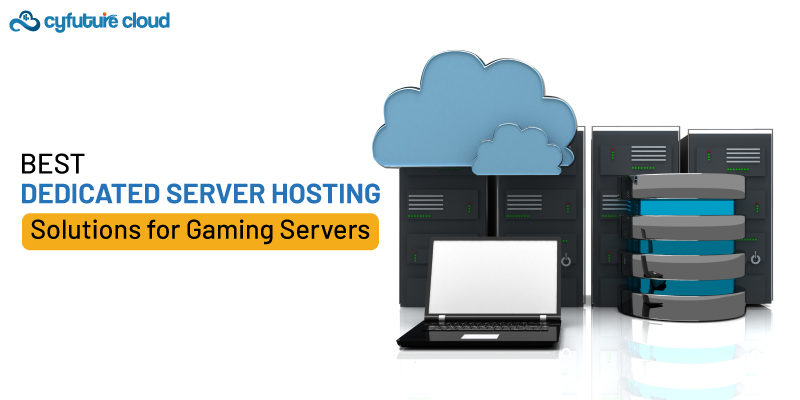Table of Contents
The manner that modern software development is done has been changed by containers and cloud computing. Containers have become a crucial component of any tech stack due to the emergence of microservices architecture and the requirement for scalable, dependable, and agile software systems. However scaling up the management of these containers can be a difficult task. In this situation, Kubernetes is useful.
The deployment, scaling, and maintenance of containerized applications are all automated via the open-source container orchestration technology known as Kubernetes. For managing and deploying containers across several hosts and environments, it offers a uniform API and strong tools.
It is impossible to exaggerate the significance of Kubernetes in contemporary software development. In addition to assuring high availability, scalability, and fault tolerance, Kubernetes enables developers and operations teams to manage containerized applications with simplicity. This makes it possible for new features and apps to go to market more quickly and with shorter development cycles.
Kubernetes’ broad use is evidence of how crucial it is to contemporary software development. In a poll conducted by the Cloud Native Computing Foundation, 83% of respondents said they used Kubernetes for development, while 92% said they used it in production. Also, the number of Kubernetes contributors has increased dramatically; in 2020 alone, there were over 2,300 contributors.
The reasons for Kubernetes’ widespread popularity, its advantages, and how it has changed the process of modern software development will all be covered in this blog. Learn more by reading on!
What is Kubernetes?
The open-source container orchestration platform Kubernetes, sometimes referred to as “K8s,” is created to automate the deployment, scaling, and management of containerized applications. The Cloud Native Computing Foundation now maintains it after Google initially built it (CNCF). To effectively manage and deploy containerized applications, Kubernetes is frequently utilized in cloud computing environments.
Fundamental terminologies and concepts used in Kubernetes Kubernetes introduces a number of new terminologies and concepts that are crucial to comprehending how it operates. The following are some of the fundamental ideas:
- Nodes: Machines, either real or virtual, on which containers are installed.
- Pods: The smallest deployment unit in Kubernetes is called a pod, and it consists of one or more containers.
- Services: A method of making a group of pods available as a network service.
- Deployments: A higher-level notion that controls replicas of a group of pods in the desired state.
- ConfigMaps and Secrets: Used to store confidential information and configuration data, respectively, are ConfigMaps and Secrets.
- These ideas and terminologies offer a strong framework for effectively managing and deploying containerized applications.
Kubernetes’ Function in Orchestrating Containers
Container orchestration, or the process of managing and delivering containerized applications across many hosts and environments, is where Kubernetes comes into play. Kubernetes has a number of critical components that make it possible to orchestrate containers effectively.
- Scaling: Kubernetes can automatically scale up or down applications in response to demand, ensuring that each container receives the appropriate amount of resources.
- Load balancing: In order to make sure that applications are highly available and resilient, Kubernetes may load balance network traffic among a number of containers.
- Self-healing: Application uptime is always guaranteed by Kubernetes’ ability to automatically detect and recover from container failures.
- Resource management: By controlling resources like CPU and memory utilization, Kubernetes can make sure that containers are operating effectively and economically.
Kubernetes is a crucial solution for managing and delivering containerized applications in cloud computing settings because of all of these attributes and abilities.
For managing and delivering containerized applications in cloud computing settings, Kubernetes is a crucial technology. Many of the processes involved in managing extensive container deployments are automated, and it offers a strong framework for container orchestration. Developers and operations teams may utilize Kubernetes to design and operate effective and scalable containerized systems by becoming familiar with its fundamental ideas and vocabulary.
What makes Kubernetes so crucial?
Kubernetes is vital for modern software development because it delivers various benefits that enable faster development cycles, higher scalability, and better resource management. Using Kubernetes for software development has a number of important advantages, including:
- Simplified container administration: Kubernetes streamlines container management by automating many of the deployment and scaling procedures.
- Accelerated application deployment: Kubernetes enables developers to deploy containerized applications more quickly, accelerating the time to market for new features and applications.
- More scalability: Kubernetes’ ability to automatically scale up or down containerized applications ensures that each container receives the proper amount of resources.
- Enhanced availability: A higher level of availability is possible thanks to Kubernetes, which can split network traffic among several containers to make sure applications are highly available and robust.
- Resource management: Kubernetes can control resources like CPU and memory utilization to make sure that containers are operating effectively and efficiently.
Why are Companies Using Kubernetes
1. Efficient container orchestration for application deployment
2. Seamless scaling and management of applications
3. Streamlined operations and improved resource utilization
4. Flexibility and support for diverse cloud-native architectures
5. Automated application deployment and lifecycle management
Benefits of Deploying and Managing Containers with Kubernetes
Due to its benefits over competing container orchestration solutions, Kubernetes is crucial for container management and deployment. Using Kubernetes for container management and deployment has a number of benefits, some of which are as follows:
- Open-source: Kubernetes is free to use and may be customized to meet the unique requirements of various companies because it is open-source software.
- Widely adopted: Widely embraced According to a survey conducted by the Cloud Native Computing Foundation, Kubernetes is widely used, with 92% of businesses utilizing it in production.
- Platform-agnostic: Kubernetes can run on any cloud computing platform or on-premises infrastructure, providing maximum flexibility and portability.
- Vendor-neutral: Kubernetes can be utilized with any cloud provider or infrastructure because it is not dependent on any one vendor or cloud platform.
- Vast ecosystem: Kubernetes has a wide ecosystem of add-ons, tools, and outside services that may be utilized to enhance its features and cater to the unique requirements of various businesses.
Evaluation of Kubernetes in Comparison to Competing Technologies for Container Orchestration
Although there are competing technologies for container orchestration, Kubernetes stands out for its usability, scalability, and adaptability. When it comes to managing and deploying containerized applications, Kubernetes offers a more stable and feature-rich platform than competing container orchestration solutions like Docker Swarm and Apache Mesos. The following are some of the main benefits of Kubernetes over alternative container orchestration tools:
- Big community: Kubernetes has a sizable and vibrant developer and contributor community, which means it is continuously developing and getting better.
- Strong API: Developers may interface with and manage containerized apps at scale using Kubernetes’ strong API.
- Sel-Healing: Application uptime is always guaranteed by Kubernetes’ ability to automatically detect and recover from container failures.
- Load Balancing: In order to make sure that applications are highly available and resilient, Kubernetes may load balance network traffic among a number of containers.
As a result of its many advantages over competing container orchestration solutions, Kubernetes is crucial for contemporary software development and container administration. Developers and operations teams may create and operate effective, scalable, and highly available containerized applications in cloud computing environments by utilizing Kubernetes’ power and flexibility.
Kubernetes’s Broad Adoption
One of the most widely used container orchestration systems in recent years is Kubernetes. The Cloud Native Computing Foundation found that 92% of businesses now use Kubernetes in production, up from 58% in 2017. The advantages Kubernetes offers for container management, deployment, and scalability in cloud computing settings are what are driving this surge in popularity.
Kubernetes is used by many large corporations to manage their containerized applications. For instance, Airbnb manages its infrastructure with Kubernetes, allowing it to scale its apps effectively and swiftly. Kubernetes was developed by Google, which also heavily utilizes it for its own internal applications. Spotify, Capital One, and IBM are a few additional businesses that utilize Kubernetes.
How Kubernetes Help to Make Cloud-Native Architectures More Widely Used?
Cloud-native designs, which are created to benefit from the scalability, flexibility, and mobility of cloud computing environments, are made possible in large part by Kubernetes. Developers may create highly scalable, robust, and available applications using Kubernetes’ platform for container management and deployment. This facilitates the adoption of cloud-native architectures by businesses, which can help them lower costs, boost productivity, and enhance customer experience.
In conclusion, Kubernetes’ extensive use by businesses of all sizes shows how important it is as a tool for container deployment and administration in cloud computing settings. Companies may create and operate highly scalable and effective containerized applications that support the adoption of cloud-native architectures by utilizing the advantages of Kubernetes.
How to Get Started with Kubernetes?
Starting started with Kubernetes can be scary, but there are numerous recommendations that can help. Initially, it’s vital to have a basic understanding of containers and cloud computing. Next, consider starting with a managed Kubernetes service from a cloud provider, which can assist ease the setup process. Finally, start basic and gradually add more complexity as you become more comfortable with the platform.
Tools and Resources Available for Learning Kubernetes
There are various resources available for studying Kubernetes, including official documentation, online classes, and community forums. The Kubernetes website contains comprehensive documentation, including tutorials, guidelines, and API references. There are also many online courses and tutorials available, such as those offered by Kubernetes Academy and Udemy. Also, the Kubernetes community is quite active and helpful, with forums and Slack channels available for users to ask questions and seek advice.
Recommended Practices for Building and Managing Kubernetes Clusters
Installing and managing Kubernetes clusters can be complex, but there are some best practices that can assist ensure success. First, check that your cluster is adequately sized to match the demands of your applications. Then, create a solid security policy, including access limits, network segmentation, and encryption. Finally, monitor your cluster closely, using tools such as Kubernetes Dashboard, Prometheus, and Grafana to track performance and discover anomalies.
Getting started with Kubernetes might be tough, but with the correct resources and best practices, it is feasible to successfully deploy and maintain containerized applications in a cloud computing environment. By following suggestions for getting started, using available tools and resources for learning, and using best practices for installing and managing Kubernetes clusters, enterprises may take use of the benefits of this powerful container orchestration platform.
Crux
In conclusion, Kubernetes has become a vital tool for modern software development, enabling enterprises to manage containers at scale in cloud computing environments. Its popularity and usage continue to grow, with more and more firms embracing its features to construct highly scalable and efficient systems.
As Kubernetes continues to gain popularity, it’s critical for enterprises to have a stable and secure cloud computing infrastructure to host their containerized applications. This is where Cyfuture Cloud can help. With our managed Kubernetes service, we provide a secure, scalable, and highly available platform for deploying and managing containerized applications. Our team of professionals can help you get started with Kubernetes and guarantee that your applications are running smoothly and efficiently.
Moving ahead, we anticipate to see even increased acceptance and usage of Kubernetes as more firms embrace cloud-native designs and the benefits they provide. As Kubernetes continues to evolve and improve, we at Cyfuture Cloud will continue to provide our customers with the finest possible platform for delivering and managing containerized applications.
Recent Post
Send this to a friend

 Server Colocation
Server Colocation CDN Network
CDN Network Linux Cloud Hosting
Linux Cloud Hosting Kubernetes
Kubernetes Pricing Calculator
Pricing Calculator
 Power
Power
 Utilities
Utilities VMware Private Cloud
VMware Private Cloud VMware on AWS
VMware on AWS VMware on Azure
VMware on Azure Service Level Agreement
Service Level Agreement 



















